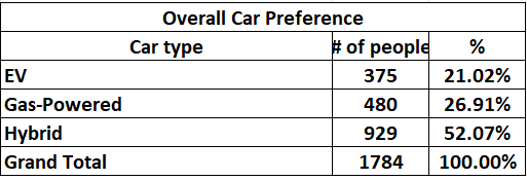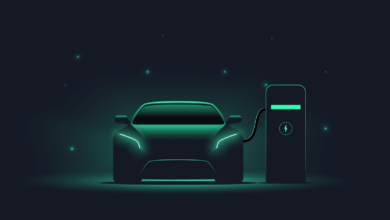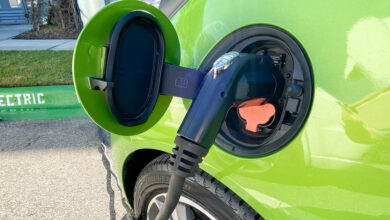Hybrid cars are popular among Democrats, Republicans, and Independents. But electric and gas-powered vehicles get mixed approval

Jeannie Assimos
guteksk7 // Shutterstock
Recent headlines reveal that thousands of electric vehicles are sitting on dealer lots. CEO of General Motors Mary Barra confirmed the speculation about the slowdown in an earnings call in late January: “It’s true, the pace of EV growth has slowed, which has created some uncertainty.”
The most significant factor in EV purchase hesitancy seems to be the fear of running out of charge without any charging stations nearby. Wall Street Journal reporter Joanna Stern highlighted the problem when she drove around Los Angeles in a Rivian R1T to 30 charging stations, and 40% of them were not working correctly.
Way.com wanted to understand how its customers felt about EVs—as well as hybrids and gas-powered vehicles—and whether their different viewpoints matched political parties. The team surveyed 1,784 Way.com customers throughout the U.S. to get their feedback. The most interesting stat? Hybrids were voted the most popular choice for everyone (52%), over both EVs (21%) and gas-powered (26.9%) cars.
![]()
Hybrids top the charts in popularity

Way.com
When breaking it down by political parties, all three (Democrats, Republicans, and Independents) were also fans of the hybrid option. Republicans are the biggest fans of gas-powered vehicles, while Democrats are the least interested in them.
Republicans less enthusiastic about EVs than Democrats by 13%

Way.com
Democrats in California and New York were most comfortable with the EV option, with over 50% saying they were completely comfortable charging their cars and never spending a dime on gas again. In Texas and Florida, Democrats were less confident (only 23% and 33%, respectively, were completely comfortable) and more concerned about getting stuck somewhere with no charging options.
Meanwhile, Republicans are far less enthusiastic about EVs. Just 16% of those surveyed in California were completely comfortable driving an EV car. The number dropped further in New York, with only 7% loving the idea of driving one.
48% of California Democrats surveyed don’t mind driving EVs

Way.com
Despite the negative press, however, EV sales are increasing yearly. According to Cox Automotive, EV sales should account for 10% of total car sales in 2024. And as Toyota and other manufacturers work to create longer-range capabilities and lower the cost on the price of EVs, they should continue to gain in popularity.
The big automakers (including Ford, Honda, and General Motors) announced that they will adapt their cars to work at Tesla charging stations, which will be a huge relief for customers. Look for this to roll out in Hondas as early as 2025.
This story was produced by Way.com and reviewed and distributed by Stacker Media.



